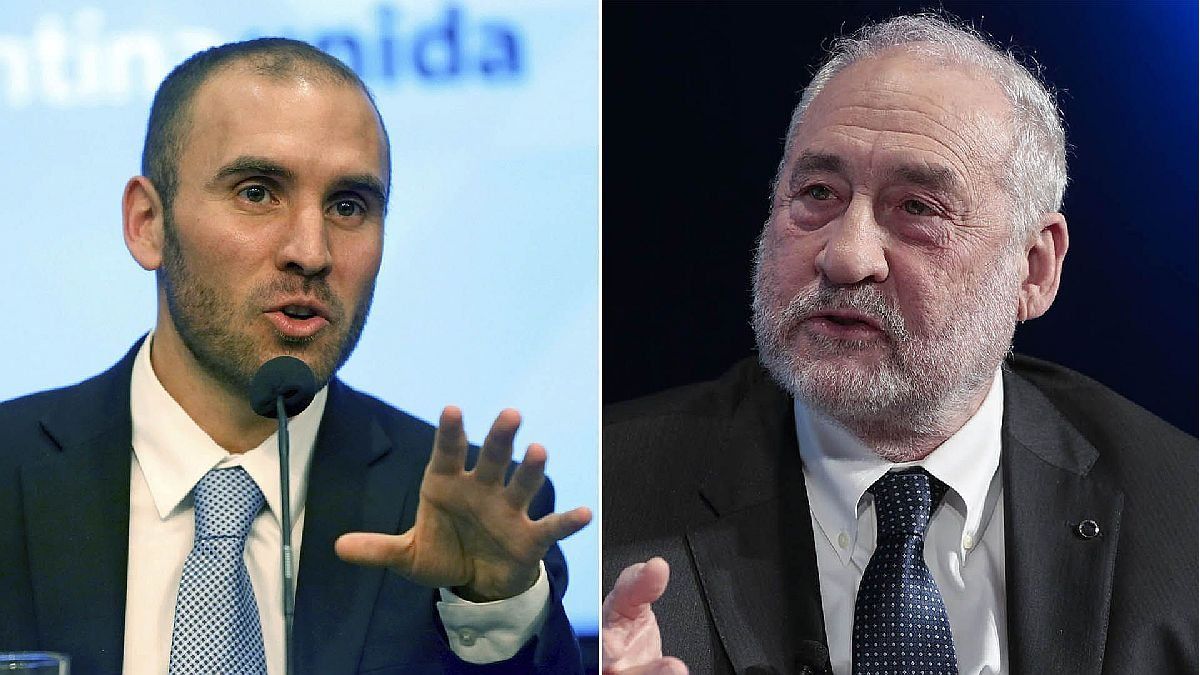The former Minister of Economy and the American professor were the main speakers at a talk called “Global South and over-indebtedness”organized by Columbia University and the Friedrich Ebert Stiftung.
This was Guzmán’s first public appearance after his resignation as head of the Palacio de Hacienda at the beginning of last July.
During the talk, Stiglitz described the world situation as “a perfect storm”, caused by the slowdown in activity and the drop in income generated by the pandemic; by the increase in prices caused by the war in Ukraine; by the acceleration of inflation; and the rise in interest rates that makes credit more expensive and makes it difficult to repay debts.
“Everyone points out that the probability of some countries falling over the edge is very high. And some are already doing so. An urgent international framework is needed to solve the debt problem”completed the 2001 Nobel Prize in Economics.
image.png
In the same line, Guzman I consider that “Economies are reacting to inflation as if it were a demand shock, therefore we are going to have more debt problems and restructurings are going to be more difficult than in past decades.”
According to the vision of the economist from La Plata, the next debt renegotiation processes will face major problems: on the one hand, power asymmetries between debtors and private creditors.
For Guzmán, the private ones have “a lot of lobbying capacity.”
“Argentina is a very powerful debtor, in that sense, but not all countries have that capacity (to deal with pressure from private parties),” added the former minister.
On the other hand, Guzmán mentioned a problem of information asymmetry, since many times “Debtors know very little about creditors.”
“There has to be an information agency that identifies who the bondholders are, there has to be a map so that the countries know with whom they are negotiating,” he added.
In that framework, Guzmán agreed with Stiglitz regarding the need for a overall framework and pointed out that, at present, “there is no international system for sovereign debt restructuring. Everything is left to negotiation (between parties).”
The role of the IMF
Regarding the role of International Monetary Fund in sovereign debt crises, Guzman He maintained that “I had to deal with the IMF on a weekly basis and I saw positive and proactive leadership, but more often than not geopolitics get in the way. IMF responds to the interest of the large holders of the debt”.
“Some aspects have to be reviewed so that the Fund is stabilizing and not destabilizing. Surcharge policy needs to be reviewed, because it has caused a lot of damage. In addition, with the current crisis, more and more countries need to ask for money, but the interest rate increases. The IMF’s was 0% a couple of years ago and now it’s above 10%,” he added.
And he continued: “Why do countries have to pay for operating expenses? Those payments do not even appear on the IMF website. The IMF is not a transparent entity, it is not known what it does with this money. If it invests it in emerging markets or in assets of more solid countries”.
Finally, regarding the agreement that he reached with the multilateral organization during his tenure as Minister of Economy, Guzmán stated that “the negotiations with the IMF were unusual and the agreement we made was not restrictive in fiscal terms, but there was an expansion in spending nor did it imply changes in laws that modify the assets of workers and retirees.”
Source: Ambito
David William is a talented author who has made a name for himself in the world of writing. He is a professional author who writes on a wide range of topics, from general interest to opinion news. David is currently working as a writer at 24 hours worlds where he brings his unique perspective and in-depth research to his articles, making them both informative and engaging.




